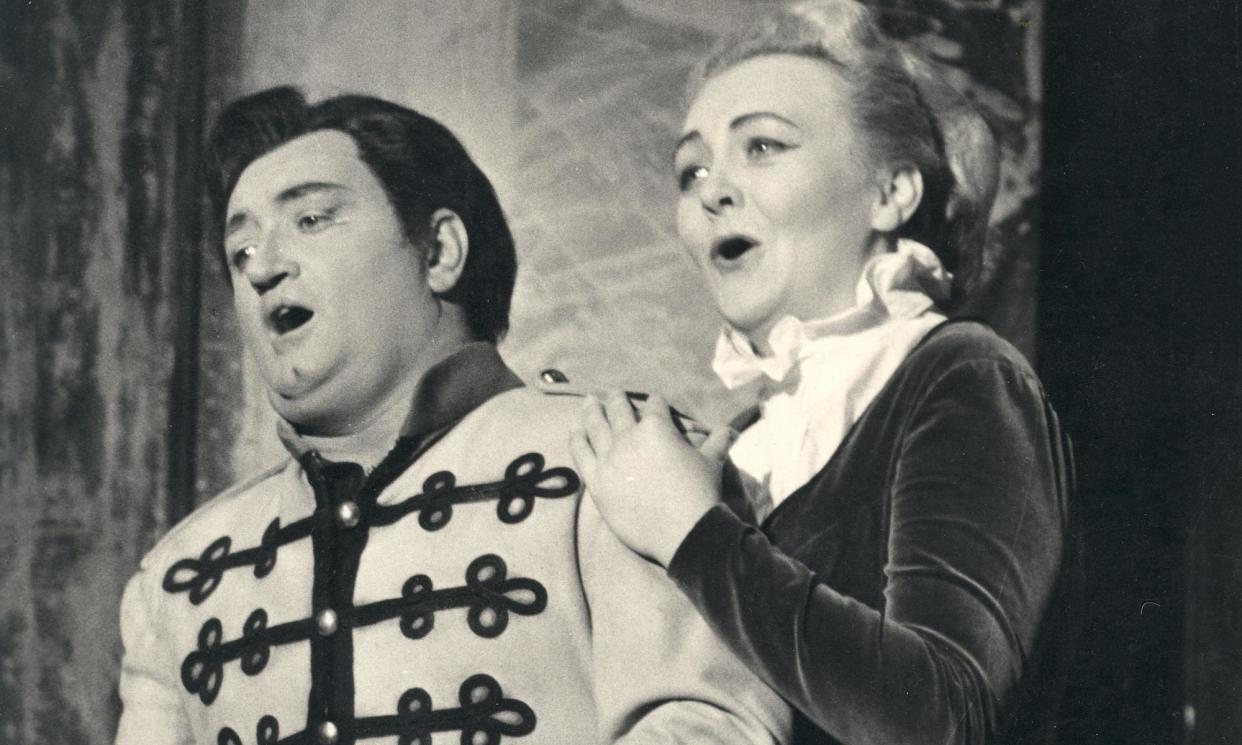Margaret Curphey obituary

Margaret Curphey, who has died aged 86, was a member of the company of singers that under the inspirational direction of Reginald Goodall gave the world a series of Wagner performances acclaimed as a landmark in British operatic history. The English-language recordings of her as Sieglinde and Gutrune in the Ring, and as an exquisite Eva in The Mastersingers – demonstrating a peerless understanding of the fusion of text and music at the heart of Wagner’s art – are sufficient to guarantee her place alongside Rita Hunter, Alberto Remedios and Norman Bailey in that project. However, she never made the big breakthrough in career terms that her vocal talents deserved.
The authority of her singing throughout the range, but with a specially radiant top, together with the nuanced deployment of tonal colouring, were indispensable assets in these roles, cultivated over an extended period of time in Valhalla, as Goodall’s rehearsal eyrie under the roof of Covent Garden was known. She also sang Elsa in Lohengrin – the sheer beauty of sound in the Act III love duet with Remedios has arguably never been surpassed – but her vocal amplitude and ability to project enabled her to add the heavier part of Brünnhilde to her other Ring roles, at Goodall’s instigation, singing it in London and subsequently Seattle, Santiago di Chile and Gothenberg.
She was a principal for 13 years, starting at Sadler’s Wells in 1965, and moving on with the company to the London Coliseum in 1968; it became English National Opera in 1974. Her first role with the company was as Micaële (Carmen), a part to which she was able to bring both the perception of vulnerability and the inner strength for the climactic outbursts.
By the late 1960s she was starting to get highly favourable reviews in such roles as Pamina (Magic Flute), Santuzza (Cavalleria Rusticana) and the Countess (Marriage of Figaro). Other roles included both Mimì and Musetta in La Bohème, Ellen Orford (Peter Grimes), Ninetta (The Thieving Magpie), Violetta (La Traviata) and Leonora (Il Trovatore).
Goodall invited her to sing Isolde (Tristan and Isolde) in a production for Welsh National Opera he was to conduct in 1979. At this time, however, Curphey was undergoing surgery for an arthritic hip (the consequence of a serious injury sustained in a school playground accident when she was 12). Unsure whether she would be fully recovered in time, Goodall turned to Linda Esther Gray, who had been hired as Brangäne for the production, but was also singing Isolde for him at ENO more or less coterminously. It was agreed that Gray would sing the first five performances in Cardiff, leaving Curphey to take over for the remainder, but she was not well enough to do so and was replaced by Anna Green.
Curphey returned to her native Isle of Man as a permanent resident in 1980 but attempted a comeback to the stage in 1981, returning to sing three roles for Opera North: Yaroslavna (Prince Igor), Agathe (Der Freischütz) and Reiza in a concert performance of Oberon, broadcast by the BBC. She also sang the Verdi Requiem in Coventry Cathedral, the Royal Albert Hall and the Royal Festival Hall, toured to Singapore and Reykjavik to perform in concerts and sang Miss Jessel (Turn of the Screw) in Geneva. Her compromised mobility, however, precluded a full return to the stage.
Born in Douglas, Isle of Man, Margaret was the daughter of Mary (nee Gelling) and William Curphey, a police sergeant and later inspector of the Harbour Police. Both were amateur singers, as were Margaret’s twin sisters Muriel and Christine. (A younger sister joined the Lancashire police force.) Margaret studied with John Carol Case and David Galliver at the Birmingham School of Music, then toured with the Arts Council’s Opera for All (1963 season) before joining the Glyndebourne chorus (1964–65), at one point understudying Montserrat Caballé.
Then arrived the contract as principal artist for Sadler’s Wells Opera, though for a brief period in 1967 she also sang with Scottish Opera. In the same year, she sang in the UK premiere of Mozart’s Lucio Silla at the Camden festival.
She retired in 1994 following a farewell concert at Erin Arts Centre with Remedios and her husband Philip Summerscales, a businessman and baritone. She was highly esteemed by colleagues for her generosity and warmth both on and off the stage and continued to support artistic activity on her native island.
She is survived by Philip, whom she married in 1967, and their daughter, Helen.
• Susan Margaret Curphey, soprano, born 27 February 1938; died 13 March 2024


